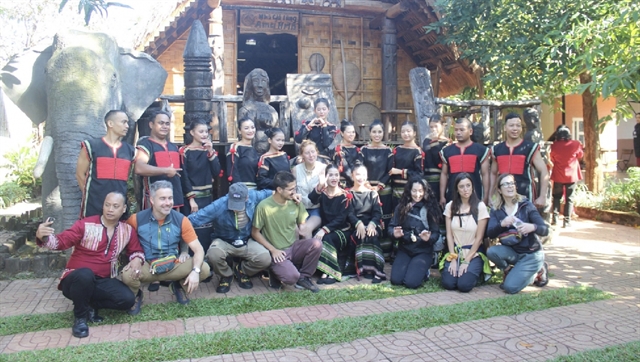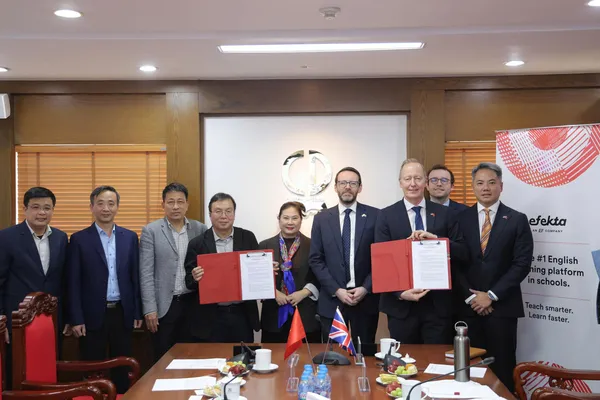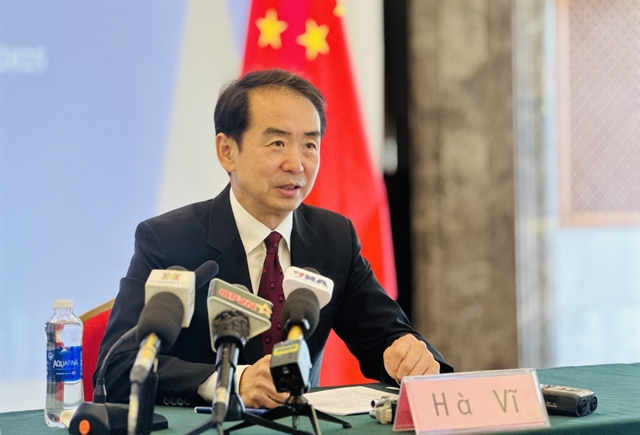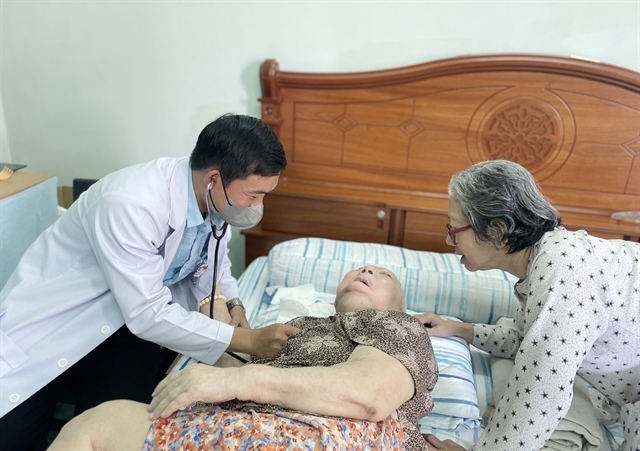

Việt Nam will soon have its own "Wikipedia" page, maybe even more interactive, developed by Vietnamese people for Vietnamese people.
by Thu Vân
HÀ NỘI – Việt Nam will soon have its own "Wikipedia" page, maybe even more interactive, developed by Vietnamese people for Vietnamese people.
The page is a proactive, interactive effort to spread knowledge and awareness of scientific and technological developments, promoting education resources and sci-tech creativity in the country.
It will be developed under a project called "Development of the Vietnamese digital knowledge system" that has been approved by the Prime Minister.
The project document says creativity based on scientific and technological knowledge is of crucial importance for any nation’s sustainable development.
“To make the country grow faster and more sustainably as the world enters the 4th Industrial Revolution, it is necessary to strengthen scientific research and technological development, and to enhance the capability of every citizen and every organisation in all sectors and all fields to renovate and create,” it says.
Given this prerequisite, the Vietnamese citizens’ perception and understanding of science and technology remains limited. Furthermore, there are certain difficulties in disseminating knowledge, according to the document that communicates the Prime Minister’s decision.
Thus, the project aims at building a digital knowledge system through activities of synthesis, systematization and digitization, making knowledge accessible to all Vietnamese citizens by storing and disseminating it. Basically, it would create an encyclopedia customized for and interactive with the Vietnamese people.
The project also hopes to arouse and spread a passion for science and technology, and generate enthusiasm among those who can contribute to it, especially enterprises, organisations and intellectuals.
Enterprises’ contribution
The state will create mechanisms to mobilise enterprises and organizations to jointly build infrastructure to store, share knowledge and develop applications, said Nguyễn Thế Trung, General Director of DTT Technology Group, a consultant to the project.
Companies operating in the field of information technology and network infrastructure, who have the aspiration and enthusiasm to play a pivotal role in developing digital knowledge and know-how, are expected to join the project.
“China has recruited more than 20,000 people to write its own Wikipedia. In our case, the State budget is limited so it is necessary to call on businesses to contribute. Big firms are expected to participate first, but along the way, all enterprises are welcome to join,” Trung said.
The project will seek to tap all available resources, especially the youth, students and young intellectuals.
Funding for the project will come partly from the State Budget’s for science and technology development and mainly from the contribution of enterprises, organisations and concerned individuals.
Đỗ Hoàng Sơn, Director of the Long Minh Book Company, said his firm and many others, as also many intellectuals would be more than willing to do this.
“The project plays a very important role for Việt Nam. In the past 25 years, the drafting of dictionaries in the country has been a poor and outdated process. A lot of technical terms in many fields have not been updated to meet standards of international accuracy. There are more books without an index than with one. In general, we’re lagging way behind the world in terms of new and updated knowledge,” he said.
Sơn, who has worked very hard for years to propagate STEM (Science, technology, engineering and mathematics) knowledge, emphasized the need for equal and fast access.
“I think it’s very essential that we have some tools to spread the flow of knowledge to every citizen. And we have to do it with modern technology so that everyone has equal access, regardless of their financial condition or geographical location,” Sơn said.
Core group
The government will set up a Core Group initially to implement this project.
According to the project schedule, by July 2017, the Government will gather about 20 potential, aspiring enterprises to be the core group for developing knowledge-based digital system.
Nguyễn Thế Trung of the DTT Group said that it is certain that the project will have to find its way to overcome challenges regarding financial, content and capacity-related problems. “However, this is exactly why there is a need for everyone to work together by mobilising companies, organisations and young intellectuals who are passionate and devoted to the country’s development.”
Sơn of the Long Minh Book Company agreed.
“The project is surely not about profit – so it has to be based on a voluntary spirit, on the willingness to dedicate efforts for the good of the people and the nation, by creating a solid foundation for the propagation of professional knowledge,” he said.
But Sơn also felt that there was a need for a mechanism by which the Government could require certain businesses, organisations and individuals to contribute.
“It’s good that someone volunteer to support the project, but it’s also necessary for the Government to push for all individuals, especially people like the heads of universities, academies and institutes, to fulfill their responsibilities as a public citizen. If it is driven mainly by Government funds, the project will not be the same (in spirit),” he said.
In August, the core group will plan the system’s infrastructure, develop technical standards for it, and decide on the tools needed to initiate the Vietnamese version of Wikipedia combining with model like Quora.
The project’s launching ceremony is expected to take place in September, and in December, the ’Vietnamese Interactive Wikipedia’ will be available in the fields of law, health, education and agriculture. A pilot model to study community interaction will also be set up in some localities.
In 2018, the Government plans to create and develop a diverse range of content for the digitalised knowledge system, expanding the development of applications in all areas across the country.
From 2019, the digitalised Vietnamese knowledge system will be further developed, becoming a full-fledged, Vietnamese-owned digital ecosystem, integrating many knowledge and digital resources data that will be widely used by society as a whole. —VNS




